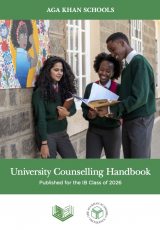International partnerships: Helping educators and students understand difference
"The road to a more cooperative world does not require us to erase our differences, but to understand them."
– His Highness the Aga Khan
To begin to help students understand and value our differences, educators themselves need to be exposed to new ways of looking at the world. One way in which this can be achieved is through examining culture, history and expression, as well as exploring how understanding and appreciation of difference can be built within their own school communities.
On 14 July 2016, participants attending the International Baccalaureate (IB) Conference of the Americas in Toronto, Canada had an opportunity to expand their knowledge about Muslim diversity by attending a pre-conference day titled Understanding difference: Many Muslim voices, held at the Aga Khan Museum (AKM). The Aga Khan Academies, in collaboration with the AKM, offered participants an opportunity to explore the richness and diversity of Muslim cultures and civilisations, fostering appreciation of the diverse histories and contributions of Islamic societies through time and space. The pre-conference day also provided a forum for participants to engage in critical conversations around promoting religious literacy and pluralism in schools. Participants were encouraged to ‘understand difference’ through thought-provoking presentations, as well as through the Museum’s collection of artefacts, with the hope of closing gaps in intercultural understanding.
The day began with a presentation by Professor Diane Moore, Director of the Religious Literacy Project at Harvard Divinity School, examining how religious literacy can enhance the capacity for expressions of deep democracy to flourish. Participants also discussed the need for institutions and educators to commit to the values and ideals of pluralism as we foster citizenship in our students. An interactive, hands-on session allowed attendees to explore how object-based learning can build more sophisticated understandings about the connections between cultures. In the afternoon, the use of 'debatable questions' became an entry-point through which school leaders grappled with how to engender an ethos of pluralism in our students.
Partnering to enhance understanding
Alex Holland, Curriculum Development Manager for the Aga Khan Academies, explains: “A key part of the Memorandum of Understanding is thinking about ways that we can work with the IB to diversify the examples used within the curriculum in IB schools, to encompass a wider range of cultural and historical contexts.”
Alex shares how the partnerships grew: “After the Charlie Hebdo attacks happened in Paris, we were talking about the need to present students with more diverse ideas about Muslim cultures and civilisations to combat the stereotypes that exist in popular culture at the moment. We thought about doing something at the [IB] conference that might give teachers a framework to find out more for themselves about Muslim cultures and civilisations, and discuss ways we can present more diverse narratives in our schools.”
As part of the pre-conference day, the Aga Khan Academies and Aga Khan Museum provided attendees with a teaching resource that they can utilise in their own classrooms. The resource, titled Treasures of the Silk Routes, aims to engage students in object-based learning and provide educators with ideas to help students discover the stories behind objects. Alex elaborates: “We show how cultures came together and exchanged ideas…that globalisation is not a modern phenomenon. Along the Silk Route, people were swapping ideas and sharing things back and forth…This is important because it speaks to the diversity at the time.”
Religious literacy and pluralism
Diane Moore speaks to the importance of religious literacy: “People don’t understand the power of religion, and we are promoting and producing assumptions about religion that entrench these binary belief systems of good and bad or right and wrong, which is devastating for every issue, not just religion. To me, religion isn’t the only challenge we are facing, but it is certainly a big one and the lack of understanding of religion is significant.”
Through her participation at the pre-conference day, Diane hoped to empower and equip teachers with better tools to understand the challenges in our world. She explains: “What we have found in the more complex ways to think about religion, is that teachers find it incredibly inspiring as it gives them better tools to think about and address questions that they have already struggled with…I wanted to focus on disrupting what people hold as part of their assumptions and give people the ability to reflect on and challenge their own assumptions – assumptions they may not even know they are making.”
Naheed Bardai, Head of Middle Division at Upper Canada College, describes the importance of pluralism, given the challenges in our world: “Pluralism…is the most important set of skills that we need to have as communities to help negotiate the increasing challenges that are going to be coming this decade and future decades. I think if we want to support peace and understanding in the world, pluralism will be a core foundation of that.”
The collaboration between the three participating institutions – the Aga Khan Academies, the Aga Khan Museum and the International Baccalaureate – resulted in a powerful and impactful learning experience for teachers who will go on to educate classrooms full of students. These institutions look forward to continuing to work together to create opportunities for opening minds and broadening perspectives. His Highness the Aga Khan outlined both the challenges and significance of this work during his concluding remarks when accepting the Adrienne Clarkson Prize for Global Citizenship: “It will mean hard work. It will never be completed. But no work will be more important.”
By Karina Hussein (author and photographer)
Newsletter readers please click here to return to the newsletter (browser version)
publications




